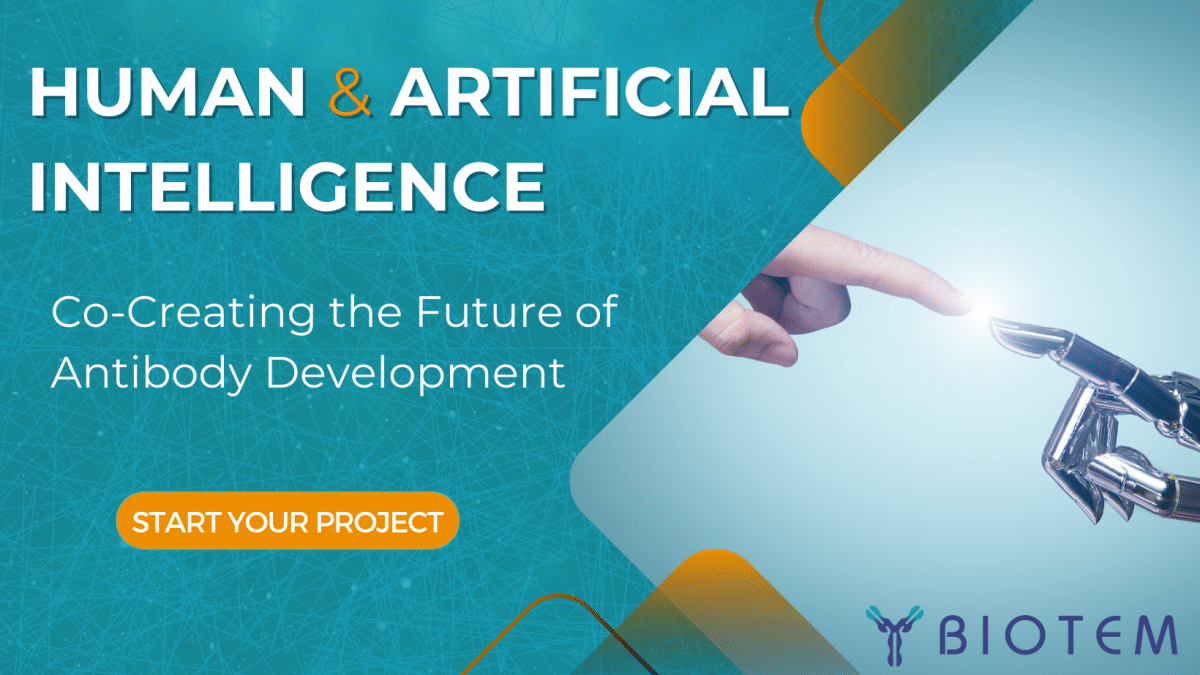HUMAN & ARTIFICIAL INTELLIGENCE
Co-Creating the Future of Antibody Development
Artificial Intelligence: A Revolution in Biotechnology?
Artificial intelligence (AI) is reshaping the world of biotechnology, and more specifically the field of monoclonal antibody (mAb) design. It suggests, optimizes, predicts. Still, one question remains: how far can we trust it to design the ideal antibody? And above all, who makes the final call?
The AI-Human Duo in mAb Design
While AI brings undeniable advantages in terms of computational speed, pattern recognition, and large-scale data integration, these tools remain relatively new and continue to evolve. Their predictive models, although powerful, are not yet mature enough to replace the deep domain knowledge and critical thinking of experienced researchers. Human expertise remains essential to interpret AI-driven outputs, assess biological relevance, and integrate regulatory, experimental, or application-specific constraints that algorithms cannot fully understand. Over the coming years, significant optimization and validation efforts will be needed to make these technologies more robust, reliable, and fully integrated into the antibody development workflow.
AI platforms can be involved in several stages of an antibody development program, essentially as an assistant for:
- Epitope Selection
- VH/VL Sequence Generation
- Affinity & Stability Optimization
- Prediction of Developability / Manufacturability Properties
AI: A Brilliant Tool, Not an Autonomous One
Deep learning models provide unprecedented assistance: they allow rapid testing of thousands of combinations, anticipate secondary structures, and reduce off-target effects. However, these models are only as reliable as the data on which they are trained. Publicly available datasets, though vast, are often incomplete or skewed toward positive outcomes, with limited representation of experimental anomalies, failures, or unpublished negative results—the so-called “grey literature” that researchers rely on in practice. As such, AI models may miss rare but biologically relevant edge cases or overfit to patterns that do not hold true across all biological contexts.
Conclusion – Human Intelligence, Memory of Silent Failures
AI is changing how we design monoclonal antibodies, but it cannot replace human expertise. The researcher is not just a decision-maker—they are the keeper of a collective memory, built from failed experiments, undocumented artifacts, and instincts shaped by experience and, sometimes, failure.
What AI doesn’t see — the forgotten negative results, the faint signals from a project prematurely abandoned — the scientist remembers. They draw lessons from what models, trained only on documented successes, still ignore. In short, AI proposes. But humans decide.





